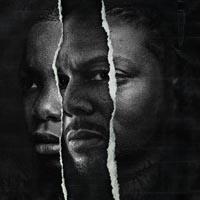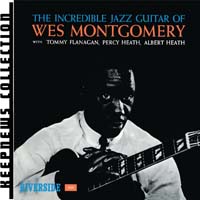2024-07-24
Dizzy Gillespie: The Jazz Legend
The melodic and fun sound of Dizzy Gillespie has made its way into many people's hearts. His upbeat music, masterful playing style, and lively personality have endeared him to millions of fans worldwide. But it wouldn't be an honest review if we didn't discuss some of his failings as a musician as well; this includes inconsistencies in timing, lack of technical skill on certain compositions, and criticisms for overly theatrical performances. Nonetheless, despite the critique that can be offered in regards to Dizzy Gillespie's musical abilities, he is still recognized as one of the greatest jazz trumpet players ever – which speaks volumes about how talented and influential he truly was!
Jazz music has a distinct place in the music world, and one of the biggest names associated with this genre is none other than Dizzy Gillespie. The famous trumpeter was renowned for his unconventional approach to playing, his unique compositions, and his signature bent trumpet that set him apart from his peers. Gillespie was more than just a musician; his lively personality and entertaining stage presence endeared him to millions of fans worldwide. In this blog, we will take a closer look at Dizzy Gillespie's life, his music, and his legacy, both good and bad.
Dizzy Gillespie was born John Birks Gillespie on October 21, 1917, in South Carolina. He grew up in a musical family and was playing the piano by the time he was four years old. However, it was the trumpet that ultimately captured his heart, and he began playing it seriously at the age of twelve. Gillespie's music was heavily influenced by the bebop movement, with his early recordings reflecting this style. He worked with some of the biggest names in the jazz world, including Charlie Parker, Ella Fitzgerald, and Duke Ellington, to name just a few.
One of Gillespie's most significant contributions to jazz music was the introduction of Afro-Cuban rhythms. In the 1940s, Gillespie became enamored with Latin music, and his collaborations with Cuban percussionist Chano Pozo led to the creation of some of his most popular compositions, including Manteca, Ool-Ya-Koo, and Cubano Be, Cubano Bop. This infusion of Latin rhythms into jazz music forever changed the genre and opened up new avenues for innovation.
Despite his many successes, Gillespie was not immune to criticism. Some of his detractors argue that his timing was inconsistent and that his technical skills weren't always up to par. Others felt that his performances could be overly theatrical, with too much emphasis on showmanship rather than musicianship. However, even with these criticisms, Gillespie's contributions to jazz music cannot be denied.
Gillespie's legacy lives on, not just through his music, but also through the many musicians he influenced. His unique playing style, composition techniques, and incorporation of Afro-Cuban rhythms inspired countless jazz musicians and helped to broaden the genre's scope. He was a true maverick in the music world and left an indelible mark on jazz history.
Dizzy Gillespie was a remarkable figure in the jazz world. His contributions to the genre were groundbreaking and helped to shape the trajectory of jazz music for years to come. His music continues to inspire new generations of musicians, and his legacy remains a testament to his talent and innovation. While Gillespie may not have been perfect, his impact on jazz is undeniable, and he will always be remembered as one of the greatest jazz musicians of all time.
Jazz music has a distinct place in the music world, and one of the biggest names associated with this genre is none other than Dizzy Gillespie. The famous trumpeter was renowned for his unconventional approach to playing, his unique compositions, and his signature bent trumpet that set him apart from his peers. Gillespie was more than just a musician; his lively personality and entertaining stage presence endeared him to millions of fans worldwide. In this blog, we will take a closer look at Dizzy Gillespie's life, his music, and his legacy, both good and bad.
Dizzy Gillespie was born John Birks Gillespie on October 21, 1917, in South Carolina. He grew up in a musical family and was playing the piano by the time he was four years old. However, it was the trumpet that ultimately captured his heart, and he began playing it seriously at the age of twelve. Gillespie's music was heavily influenced by the bebop movement, with his early recordings reflecting this style. He worked with some of the biggest names in the jazz world, including Charlie Parker, Ella Fitzgerald, and Duke Ellington, to name just a few.
One of Gillespie's most significant contributions to jazz music was the introduction of Afro-Cuban rhythms. In the 1940s, Gillespie became enamored with Latin music, and his collaborations with Cuban percussionist Chano Pozo led to the creation of some of his most popular compositions, including Manteca, Ool-Ya-Koo, and Cubano Be, Cubano Bop. This infusion of Latin rhythms into jazz music forever changed the genre and opened up new avenues for innovation.
Despite his many successes, Gillespie was not immune to criticism. Some of his detractors argue that his timing was inconsistent and that his technical skills weren't always up to par. Others felt that his performances could be overly theatrical, with too much emphasis on showmanship rather than musicianship. However, even with these criticisms, Gillespie's contributions to jazz music cannot be denied.
Gillespie's legacy lives on, not just through his music, but also through the many musicians he influenced. His unique playing style, composition techniques, and incorporation of Afro-Cuban rhythms inspired countless jazz musicians and helped to broaden the genre's scope. He was a true maverick in the music world and left an indelible mark on jazz history.
Dizzy Gillespie was a remarkable figure in the jazz world. His contributions to the genre were groundbreaking and helped to shape the trajectory of jazz music for years to come. His music continues to inspire new generations of musicians, and his legacy remains a testament to his talent and innovation. While Gillespie may not have been perfect, his impact on jazz is undeniable, and he will always be remembered as one of the greatest jazz musicians of all time.
Tag: Dizzy Gillespie, music artist, best songs, artist career
2022-11-01
The Musical Odyssey of Tadini - From Beginnings to Fame
Tadini, born as Lucas Tadini, is an acclaimed Brazilian singer-songwriter, guitarist, and producer who has carved a niche for himself in the Brazilian music industry. The talented artist has won hearts with his soulful music and thought-provoking lyrics...read more
2024-04-29
Why Common is the Underrated Legend You Need to Listen to Right Now
Do you feel like you need to take a break from some of today's monotonous music and dive into an artist that has given us classic hits for more than two decades? Say no more — Common is your man! Common's illustrious career spanning over 20 years has produced some truly unforgettable musical memories, making him one of the most iconic rappers ever. But with all his success in both rap and film, there have also been moments where he hasn't exactly received the level of recognition that he deserves...read more
2022-11-01
Ghali: The Musical Biography of an Italian Rapper
If you are not familiar with the name Ghali, then you are missing out on one of the rising Italian rappers. The world of Italian rap music has undergone a significant transformation in the past decade, and Ghali is at the forefront of this change...read more
2022-01-01
Spirit, A Unique Mix of Folk and Rock
With an eclectic mix of folk and rock, Spirit have created a unique sound that has earned them recognition in the music world. Their songs like Nature's Way and I Got A Line On You explore themes such as personal growth and resilience which speak to their devoted fans...read more
2022-01-01
Wes Montgomery: A Revolutionary Musician or Subject to Criticism?
Wes Montgomery was a pioneering jazz guitarist from Indianapolis, Indiana who set the standard for post-bop jazz guitarists in the 20th century. Not only was his unique approach to playing electrified guitar embraced and praised by players and audiences alike, but it also served as an inspiration for later generations of electric guitarists...read more
SUGGESTED PLAYLISTS








